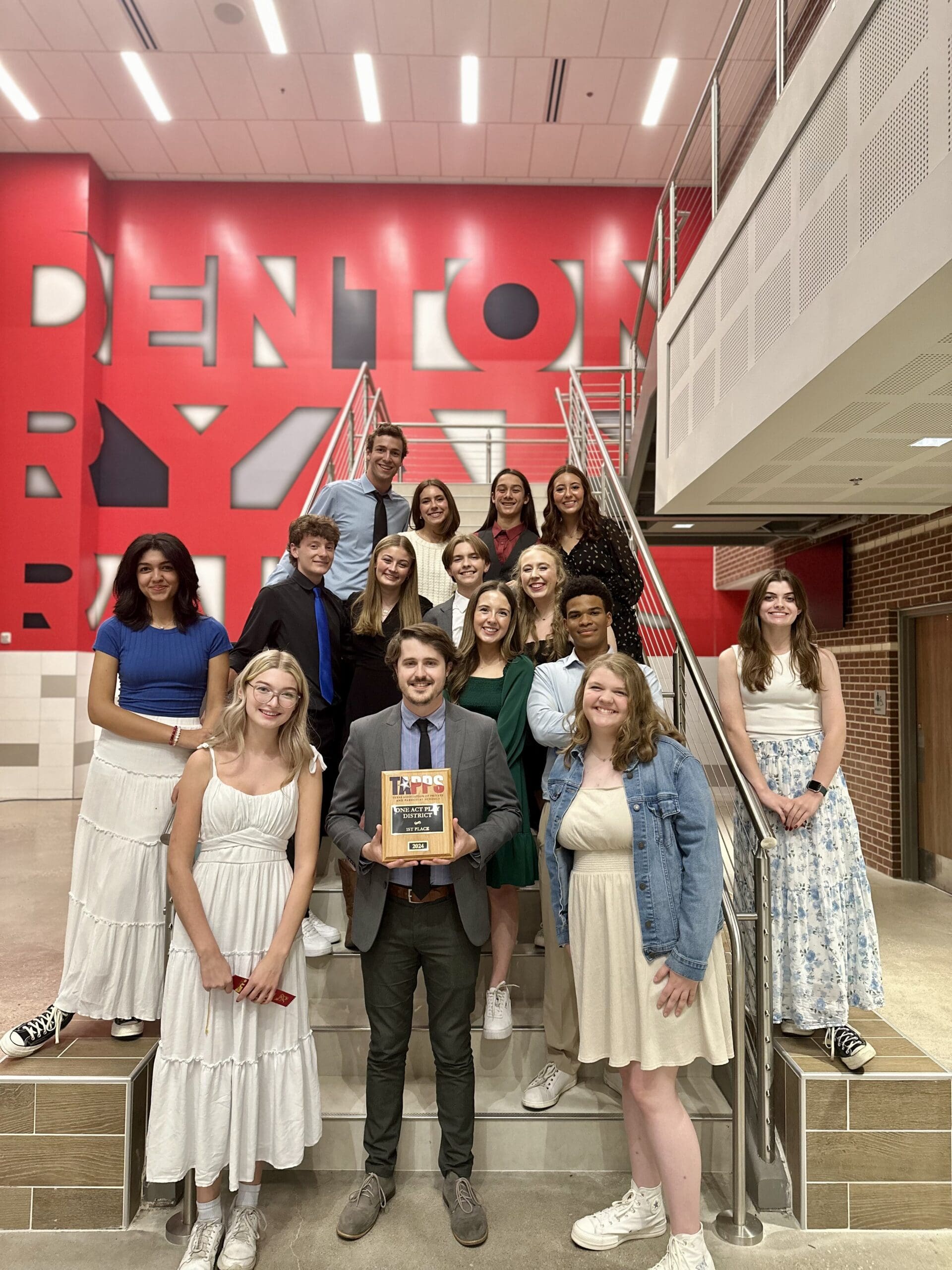Why Theater is NOT Extracurricular

Within a Christian, classical education, participation in the performing arts plays a crucial role in students’ holistic development, standing on equal footing with athletics and academic classes. At CCA, we believe that theater isn’t just an extracurricular activity; it’s a fundamental part of a comprehensive education that shapes students’ minds, hearts, and spirits. Theater offers a unique set of benefits integral to a student’s holistic growth, mirroring our mission to provide an education that inspires a passion for excellence, a heart of grace, and the character of Christ.
Artistic Expression and Personal Growth
Participating in theater allows students to explore their God-given creativity. Students learn to express themselves artistically through acting, stage managing, and technical producing while developing skills that foster imagination and innovation. This creative outlet is essential as students discover and refine their unique talents, fulfilling their biblical calling to “use whatever gift [they] have received to serve others” (1 Peter 4:10). Theater also builds confidence and resilience. Stepping onto the stage requires courage and tenacity. As students memorize lines, rehearse, and perform for their audiences, they develop self-assurance and a sense of accomplishment that extends beyond the theater. Reflecting on her time so far with CCA’s theater program, Senior Taylor Maxwell said, “Theater has given me so many skills outside the stage. It has grown my confidence and communication skills, and I am a much better public speaker because of it. I’ve made new friends and gained professional connections for my future career. I am more self-aware, can work well with a team, and I have learned about time management. Theater has made me better at working with all different types of people to accomplish a common goal.”
Collaboration and Teamwork
Theater, by its very nature, is collaborative. Theater casts and crews learn to cooperate, communicate effectively, and support one another, reflecting the biblical principle of unity: “So in Christ we, though many, form one body, and each member belongs to all the others” (Romans 12:5). Whether building sets or rehearsing scenes, students experience firsthand the importance of mutual respect and shared responsibility. Senior Brittan Steele remarked, “It isn’t about the star of the show but all the people in the show. A show can’t go on with only the lead. You need supporting characters to help the plot. You need ensemble parts to make the show bigger and better. You need a stage crew to make the set and show run smoothly. You need people running the lights so the audience can see the show and bring depth to the performance. One person does not make a show good. It takes everyone working together, listening to each other, and being willing to let others take charge; that truly makes a show great.”

Cultural Understanding and Empathy
Engaging in theater provides students with a deeper appreciation of culture and history. Through studying, rehearsing, and performing both classic and contemporary plays, students explore diverse perspectives, traditions, and societal issues. These plays foster empathy and broaden students’ understanding of the human experience, encouraging critical thinking and empathy. A great example of this was displayed in the 2023 Fall Play, Thunder on Sycamore Street. The plot centers around a suburban neighborhood’s response to an ex-convict moving in. The residents, driven by fear and prejudice, band together to confront the outsider, ultimately revealing their own flaws and biases. The play explores themes of intolerance, conformity, and the human tendency to judge others. While plagued by the injustices of a fallen world, theater allows space for directors, actors, crew, and audiences to challenge their own blindspots and find the truth, goodness, and beauty in new perspectives. At CCA, we lead our students to build these ideals on the Christian worldview – seeking to love and serve the world around us just as Christ has served us.
Long-Term Impact
The benefits of theater extend far beyond high school. Students who participate in theater carry forward the skills and experiences gained into their adult lives. The discipline required for memorization, time management, and multitasking in theater rehearsals mirrors the skills needed for lifelong success. Whether pursuing careers in the arts, business, education, or any other field, the confidence, creativity, and communication skills honed through theater are invaluable. Senior Taggon Petty said, “My parents and I have noticed that I have more confidence talking to others, getting out of my comfort zone, and meeting new people. I’ve learned how a theater works and how each person’s part is important and how it can connect with the body of Christ. I’ve also gotten better at memorization, critical thinking, and I’ve learned how to share my interests and listen to others. I’m very glad I took theater because it has taught me skills I can always use and has brought so much joy in my life!”
At CCA, theater is not simply an extracurricular activity; it is an integral part of our commitment to nurturing well-rounded individuals in accordance with Christian principles. By embracing the arts, we enrich the educational experience, equipping students with the skills and perspectives they need to thrive in a complex world. Actress Julie Harris once said, “God comes to us in theater in the way we communicate with each other, whether it be a symphony orchestra, or a wonderful ballet, or a beautiful painting, or a play. It’s a way of expressing our humanity.” Through theater, we empower students to discover their voices, cultivate their talents, and embrace the transformative power of storytelling, reflecting the image of our Creator who is the ultimate storyteller.
Save the date for the pride of the CCA Performing Arts Department, the CCA 2025 Spring Musical!

